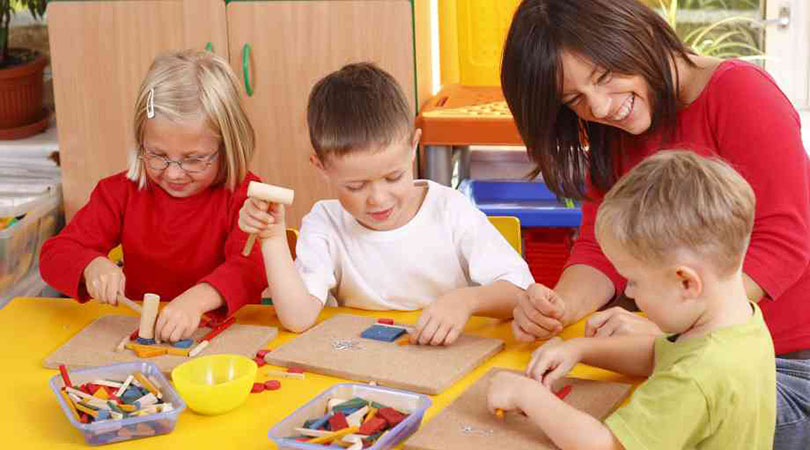7 Tips for Teaching English to Children from an Early Age
As an international language, English is very important for the academic world and other fields of life. Therefore, it is appropriate for you to teach your children English from an early age.
According to Albert Ford, Ph.D, a psychologist from Southern Illinois University, when children are small, their brains are still developing rapidly. Albert also said that at toddler age, children's language patterns and speaking abilities have not been formed properly, and several studies have shown that toddler age is indeed the right time to encourage children to have language skills.
Some parents may think that teaching English to children is a little more complicated, because the environment around them does not use that language. However, now you don't need to worry, here are 7 tips for teaching English to children from an early age that you can try.
1. Use in Everyday Conversations
One of the best ways to teach children English is to use it in everyday conversations. You can try to often talk to children in English. In this way, children can get used to and be able to communicate in English automatically.
2. Practice Regularly
Routinely practicing English every day is also a successful tip for children to be able to speak English well. Not only with daily conversations, but you can provide a special time for children to practice English every day.
Because children have an attitude of getting bored easily, it is best if the English learning session is arranged in a short period, such as 15 to 20 minutes. Short and regular study time is much better than long but irregular hours.
3. Learn English the Fun Way
The best way to make children happy and interested in learning English is to involve them in a game. You can try various games that can hone children's English skills, for example, scrabble, games on gadgets, or other games.
According to Dr. Martha Burns, one of the leading neurologists, states that the more interested a child is when doing an activity, the more dopamine, or a hormone that makes you feel happy is released, and the better the child is to remember the activity. Likewise, when learning English, when it is done in a fun way, it is easier for children to remember it.
4. Utilizing Technology
The development of technology and gadgets does not always have a bad effect. Now you can easily take advantage of internet facilities to teach children English from an early age.
For example, you can search for interesting pictures and videos that use English. These videos and pictures are usually one of the learning media that children like. Children can be more interested and excited to learn English.
5. Reading English Story Books
Even if your child can't read yet, that doesn't mean you can't provide interesting books for him. You can try providing story books in English to read together.
Apart from helping children learn English, reading story books to children can also help bring you closer to them. You can read story books before your child goes to sleep because at this time children absorb information more easily. So that what you teach him can easily be remembered.
6. Excuse the Grammar Mistakes
When children learn English, don't focus too much on grammar. Grammar mistakes are a natural thing for many people to do, even a native, especially your child who is just learning.
Try not to constantly correct these mistakes and allow small mistakes to be made by children so that children dare to speak, express themselves, and not lose interest in continuing to learn English.
You need to correct your child's grammar mistakes but don't focus too much on pointing out the mistakes.
7. English Learning Posters Around the House
The last tip and one that is quite easy to do is to put up attractive English posters in certain places in your home. For example, you could put up posters of vegetables in the kitchen, or posters of limbs in the bathroom. So, while carrying out daily activities, children can simultaneously learn English without spending any special time.
So, those are 7 tips for teaching English from an early age that you can try at home. Which one that you had been doing? If not, maybe you should try and start now!


